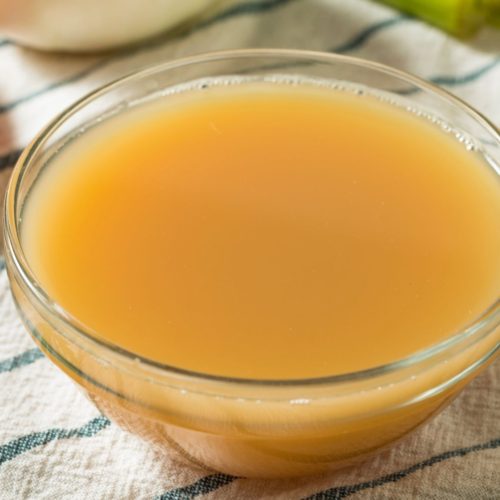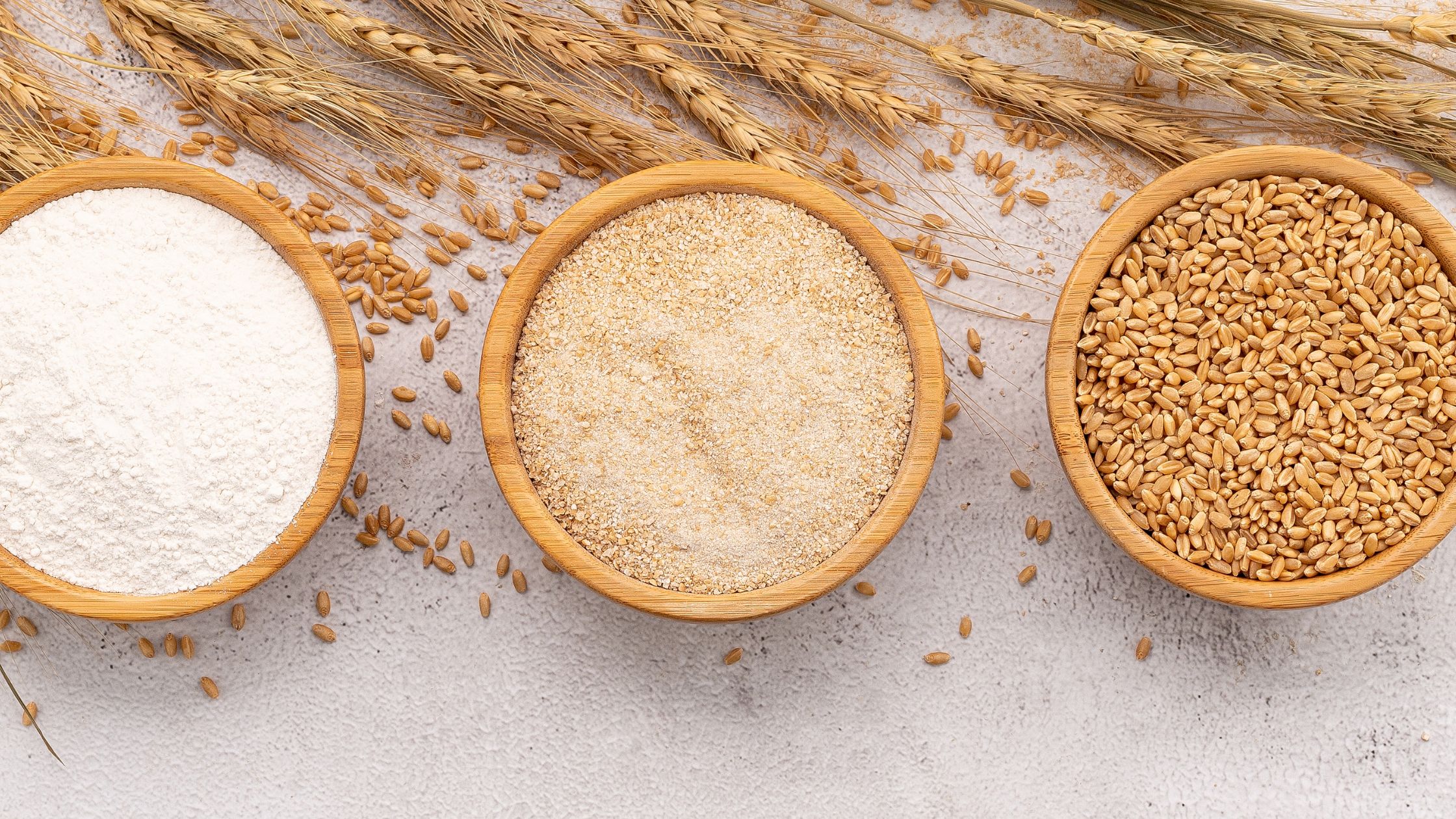I have ulcerative colitis (UC). It was diagnosed years ago, after 15 years of a misdiagnosis of IBS. I was finally diagnosed after I had my first ever colonoscopy. In the years since my diagnosis I've had five colonoscopies. The fifth one just recently. I'm one of the fortunate ones. I take no daily medications for my UC and have no major issues when I eat according to my nutritional plan. My primary triggers appear to be stress and sugar. I work hard to try to reduce both in my life as much as possible.
It had been five years since my previous colonoscopy and my doctor and I agreed that it was prudent to have a colonoscopy just to check things out. I'm fortunate enough to have found a GI doc who is amenable to my nutritional plan, supplemental routine, and the use of functional foods. His comment when we scheduled was, "I'm interested to see what's going on in there." My reply? "Me too!"
Prepping for a Colonoscopy
I'm not going to lie to you, the prep isn't fun. There's nothing like deliberately giving yourself the worst ever case of diarrhea to put a slight off-kilter aspect to your day. But it's a necessary part of the procedure so there's no help for that. Luckily over time it's gotten better as the medium used for the prep has gotten a little less disgusting to swallow.
But one thing that hasn't changed is the allowed foods. As a holistic health professional, I am not happy about the list of what you can have to "eat" during this time. Obviously solid foods are out as that's counter to the point. And you're not allowed red, blue or purple dyes. It can color the walls of the colon and look like inflamed tissue. (That's okay, anyone who reads this blog or my book knows that I am against artificial food dyes anyway.) But what is allowed, and what I don't like, are some of the other "foods." Jello, gatorade, soda, and popsicles. They all have artificial ingredients in them. Many of them have sugar.
If you're getting a colonoscopy because you have a condition which is sensitive to sugar it doesn't make sense to take in something with sugar which is going to promote inflammation and stress your system. Even if you don't have a condition which makes you sensitive to sugar, that's just not a good idea on an essentially empty stomach. It can spike your blood sugar and leave you feeling droopy and out of it. Plus all the other chemical nasties just are not a great health choice.
Healthy Colonoscopy Prep
What's on that list that I do like? Broth, tea, and juice. So here's what this holistic health professional had for my meals throughout the day of my prep.
Start with one large cup of warm water with the juice of a half a lemon to alkalize the system.
Throughout the morning I made fresh juices mostly consisting of cucumber, celery, romaine, and green apple. It was delicious, just juice, and because it was fresh it was full of nutrients. It's important to note that if you're going to drink juices they must be free of pulp. Buying over the counter juices may not be pulp free so read the label and think about what you're purchasing. Because I ran mine through my juicer all of the pulp was extracted (and went to the compost heap).
I made sure to continue to stay hydrated by drinking water and teas. Coffee is on the list but I don't drink it and even if I did I don't want the dehydrating effect. Decaf or herbal teas are perfect for this. Warm beverages are important, especially towards the end of your prep day.
Later in the day I switched from fresh juice to a nourishing broth. I had made this earlier in the week specifically for this prep day. It's delicious, provides a wonderful, gut-supportive beverage, and is a functional food. If you don't know how to make your own nourishing broth I've listed the recipe below. The beauty of this broth is that it's beneficial for gut health, provides vitamins, minerals, collagen, amino acids, and, most importantly, is warming. Anyone who has been through a colonoscopy will tell you that by the end of the day before your prep you are f-r-e-e-z-i-n-g. That's because deliberately emptying your system that way causes a drop in core temperature plus an imbalance in electrolytes and you may get very cold. Drinking this broth helped considerably and although I was definitely feeling colder I did not feel the deep bone-chilling, shivery cold that I had in the past.
I'd asked if I could have coconut water but was told no. This was mildly frustrating to me as it would have been a balanced electrolyte beverage which is something you really need to replace when you are prepping. This is why the doctor will usually recommend gatorade however I'm not a fan of gatorade due to the ingredients. When I asked if I could have coconut water the nurse was very specific and said no. The next morning when I arrived at the facility and discussed it with the staff I was told yet it would have been allowed. They think the nurse may have been confused and thought I meant coconut milk. Good to know for next time, I'll definitely be sure to add this in to my prep plan. Please note, when purchasing coconut water it's important to buy one with no unwanted additives.
The Plan
Here's the plan in a nutshell. Remember you can drink as much of these liquids as you like but if you are purchasing juices or any of the other items you'll need to read the label and avoid harmful artificial ingredients such as carrageenan, dyes, artificial sweeteners, flavorings, or preservatives.
Mira's Colonoscopy Plan
- 1 cup warm water with the juice of 1/2 lemon fresh green juice
- 1/2 cucumber,
- 2 ribs celery,
- 1/2 small head of romaine lettuce,
- 1 small green apple water,
- decaf and herbal teas
- nourishing broth
- coconut water

Nourishing Broth
Ingredients
- 1 whole chicken or 2 to 3 pounds of bones, such as necks, backs, breastbones and wings (organic, pastured chicken recommended)
- gizzards from one chicken (optional but highly recommended)
- 2-4 chicken feet (optional but highly recommended)
- 4 quarts cold filtered water
- 2 tablespoons raw, unfiltered apple cider vinegar
- 1 large onion, coarsely chopped
- 2 carrots, peeled and coarsely chopped
- 3 celery stalks, coarsely chopped
- 1 bunch parsley
Instructions
- If using a whole chicken, cut off the wings and remove the neck, fat glands and the gizzards from the cavity. Cut chicken parts into several pieces. Place chicken or chicken pieces in a large stainless steel pot with water, vinegar and all vegetables except parsley.
- Let stand 30 minutes to 1 hour. Bring to a boil, and remove scum that rises to the top. Reduce heat, cover and simmer for 6 to 8 hours. The longer the stock cooks the richer and more flavorful it will be. About 10 minutes before finishing the stock, add parsley. This will impart additional mineral ions to the broth.
- Remove whole chicken or pieces with a slotted spoon. If using a whole chicken, let cool and remove chicken meat from the carcass. Reserve for other uses, such as chicken salads, enchiladas, sandwiches or curries. Strain the stock into a large bowl and reserve in the refrigerator until the fat rises to the top and congeals. Skim off this fat and reserve the stock in covered containers in the refrigerator or freezer.
Results
I'm happy to report that all went well. My doctor doesn't want to see me again for several years and I was told to "keep doing what I'm doing." I'd also like to encourage anyone who is 50 or over who has not had a colonoscopy to consider having one. It can be a life-saving procedure as it is the only way to diagnose colon cancer and other GI conditions. As a preventative measure I believe it is worth doing.




